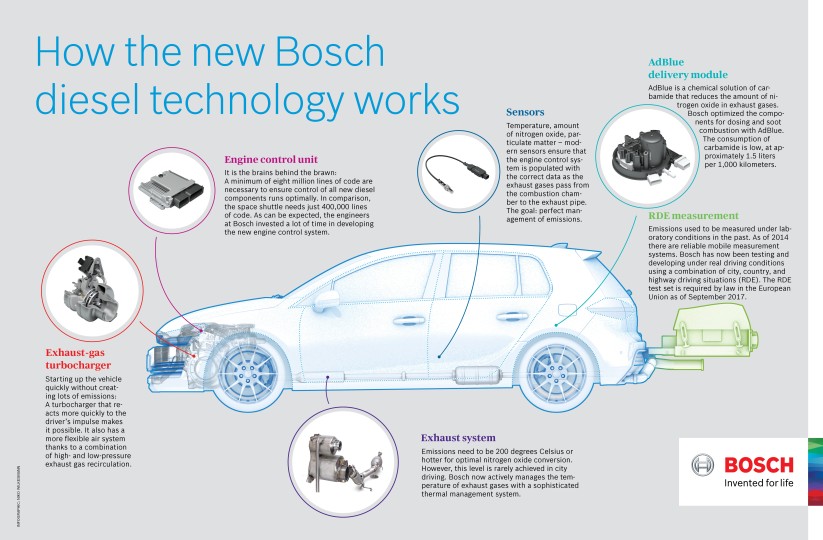[h2]So will diesel cars be banned?[/h2]Nobody is expecting diesel to be banned outright, although some urban centres are likely to outlaw the dirtiest models. From April 2019, London’s Ultra Low Emissions Zone (ULEZ) will charge diesels that don’t meet Euro 6 regulations an extra £12.50 a day, for instance. And that's
on top of the existing Congestion Charge...
As a fuel, diesel’s been around for more a century, don’t forget; Rudolf Diesel came up with the eponymous motorised engine in the late nineteenth century and it’s worth remembering that the fuel is chemically more energy-efficient than burning petrol (hence the superior mpg and fuel economy in a low CO2 diesel car).
The good news is that modern diesel engines - those meeting Euro 6 emissions regulations, and forthcoming, even tougher EU7 limits - are impressively clean, with sufficient exhaust after-treatment built in to trap the nasties that give diesel a bad name. Forget the file pictures of dirty taxis rolled out by TV news reports; a well-maintained modern diesel won't in fact belch out black smoke in cities.
Technology such as AdBlue and diesel particulate filters (DPF) are designed to filter out the soot particulates and nitrogen oxides (NOx) emissions that have been linked to ill health. (Volkswagen was caught artificially tricking its cars’ ECU electronic brains into lowering these in lab tests to meet ever stricter emissions laws, sparking the emissions scandal that broke in autumn 2015).
[h2]Future of diesel cars in the UK[/h2]Authorities worldwide are drawing up roadmaps to clean up internal combustion engines (ICE), as petrol and diesel cars enter their twilight years. Some countries, including Great Britain, have made grandiose pledges to phase out ICE entirely by
2040, but the reality is that most economies will still rely on fossil fuels for many years, decades even, to come.
If you consider the oil refinery infrastructure and the sheer volume of diesel vehicles on British roads (the SMMT tells CAR magazine there are 13.8 million diesel cars, vans and lorries registered today), you realise that the fuel cannot simply be abolished overnight. The country simply cannot switch wholesale from or to any one fuel source, whether that’s petrol, diesel, electricity or hydrogen. This will be a phased paradigm shift, most observers agree, rather than an overnight change.
Our forecast is that diesel will continue as part of the energy mix for many years to come (albeit with a falling market share), but will continue to clean up its act with the latest technology. Future legislation in Europe will impose ever-tougher emissions controls on cars that do burn fuel. So you can expect future Euro 7 and, eventually, Euro 8 laws to clamp down on pollutants even further, meaning you can in fact buy a modern diesel car with confidence for some years to come.
Car Magazine
https://www.carmagazine.co.uk/car-news/motoring-issues/should-i-buy-a-diesel-car-uk-tax-scrappage-ban/
R











